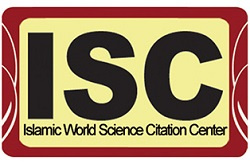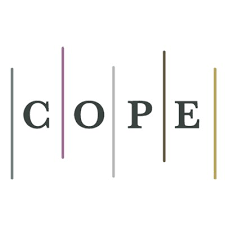A Modeling for Enhancing Consumer Trust in Organic Food through Authentic Content in Social Networks
Keywords:
Consumer, organic food, trust, social networks, content marketingAbstract
Purpose: This research aims to identify factors that improve consumers' trust in organic food in social networks by providing authentic content, prioritizing these factors, and presenting a model for them.
Methodology: In the phases of this research, first, the research literature in this field was examined. Then, with the theoretical saturation approach and through interviews with primary samples of the target audience and organic food consumers, a questionnaire was designed to measure the impact of 20 factors on consumer trust. Four hundred twenty-five organic food consumers confirmed this questionnaire and its factors
Findings: The results led to the discovery of 20 effective factors, which were categorized and modeled with the help of exploratory factor analysis in 4 categories of hidden variables with the names of emphasis on standards, description of product validity, credible recommenders, and valid supply. In the final step, with the help of a random forest algorithm in the artificial neural network, 20 identified factors were prioritized.
Originality/value: For the first time, this study seeks to increase consumers' trust in organic food in social networks by improving the presentation of appropriate advertising content in messages. So far, no research has been done in this field, specifically in improving consumption and, as a result, the sale and acquisition of the organic food market.
Downloads
References
Grosglik, R. (2017). Citizen-consumer revisited: The cultural meanings of organic food consumption in Israel. Journal of Consumer Culture, 17(3), 732-751. https://doi.org/10.1177/1469540515623609
Koswatta, T.J., et al. (2023). Factors affecting public perception of scientific information about organic foods. British Food Journal, 125(2), 587-607. https://doi.org/10.1108/BFJ-08-2021-0874
Mutlu, N. (2007). Consumer Attitude and Behaviour towards Organic Food: Cross-cultural study of Turkey and Germany.
Chen, M.F. (2009). Attitude toward organic foods among Taiwanese as related to health consciousness, environmental attitudes, and the mediating effects of a healthy lifestyle. British Food Journal, 111(2), 165-178. https://doi.org/10.1108/00070700910931986
Durham, C.A. (2007). The Impact of Environmental and Health Motivations on the Organic Share of Produce Purchases. Agricultural and Resource Economics Review, 36(2), 304-320. https://doi.org/10.1017/S1068280500007115
Akter, S., et al. (2023). Why Organic Food? Factors Influence the Organic Food Purchase Intension in an Emerging Country (Study from Northern Part of Bangladesh). Resources, 12(1), 5. https://doi.org/10.3390/resources12010005
Zhu, Y. (2018). Using the theory of planned behavior to investigate what influences Chinese intention to purchase organic food. China-USA Business Review, 17(6), 324-333.
Penni, J. (2017). The future of online social networks (OSN): A measurement analysis using social media tools and application. Telematics and Informatics, 34(5), 498-517.
Tariq, A., et al. (2019). Organic food consumerism through social commerce in China. Asia Pacific Journal of Marketing and Logistics, 31(1), 202-222. https://doi.org/10.1108/APJML-04-2018-0150
Bernal Jurado, E., et al. (2019). Agri-food companies in the social media: a comparison of organic and non-organic firms. Economic Research-Ekonomska Istraživanja, 32(1), 321-334. https://doi.org/10.1080/1331677X.2018.1547203
Sobhanifard, Y. and K. Eshtiaghi. (2020). Exploratory modelling and ranking of the trust factors of messages about organic foods in social networks. British Food Journal, 123(2), 594-609. https://doi.org/10.1108/BFJ-04-2020-0302
Willer, H., et al. (2012). The World of Organic Agriculture: Statistics and Emerging Trends.
Winer, R.S. (2009). New Communications Approaches in Marketing: Issues and Research Directions. Journal of Interactive Marketing, 23(2), 108-117. https://doi.org/10.1016/j.intmar.2009.02.004
Aertsens, J. (2011). Organic food as an emerging market: personal determinants of consumption, supply governance and retail strategies. In Faculty of Bioscience Engineering (Vol. PhD). Ghent, Belgium: Ghent University.
Sobhanifard, Y. (2018). Hybrid modelling of the consumption of organic foods in Iran using exploratory factor analysis and an artificial neural network. British Food Journal, 120(1), 44-58. https://doi.org/10.1108/BFJ-12-2016-0604
Khan, Y., I. Hameed, and U. Akram. (2023). What drives attitude, purchase intention and consumer buying behavior toward organic food? A self-determination theory and theory of planned behavior perspective. British Food Journal, 125(7), 2572-2587. https://doi.org/10.1108/BFJ-07-2022-0564
Leyva-Hernández, S.N., et al. (2023). Main Factors that Explain Organic Food Purchase Intention. Innovar: Revista de ciencias administrativas y sociales, 33(87), 93-108.
Rousseau, D.M., et al. (1998). Not So Different After All: A Cross-Discipline View Of Trust. Academy of Management Review, 23(3), 393-404. https://doi.org/10.5465/amr.1998.926617
Wolff, K.H. (1950). The sociology of georg simmel.
Jürkenbeck, K. (2023). Consumer trust in organic food producers and its influence on consumers’ attitudes toward food reformulation and its sensory consequences. Food and Humanity, 1, 793-799. https://doi.org/10.1016/j.foohum.2023.07.031
Aertsens, J., et al. (2009). Personal determinants of organic food consumption: a review. British Food Journal, 111(10), 1140-1167. https://doi.org/10.1108/00070700910992961
Jahn, G., M. Schramm, and A. Spiller. (2005). The Reliability of Certification: Quality Labels as a Consumer Policy Tool. Journal of Consumer Policy, 28(1), 53-73. https://doi.org/10.1007/s10603-004-7298-6
Murphy, B., et al. (2022). Consumer trust in organic food and organic certifications in four European countries. Food Control, 133, 108484.
Hughner, R.S., et al. (2007). Who are organic food consumers? A compilation and review of why people purchase organic food. Journal of Consumer Behaviour, 6(2-3), 94-110. https://doi.org/10.1002/cb.210
Chaniotakis, I.E., C. Lymperopoulos, and M. Soureli. (2010). Consumers' intentions of buying own‐label premium food products. Journal of Product & Brand Management, 19(5), 327-334. https://doi.org/10.1108/10610421011068568
Khare, A. and S. Pandey. (2017). Role of green self-identity and peer influence in fostering trust towards organic food retailers. International Journal of Retail & Distribution Management, 45(9), 969-990. https://doi.org/10.1108/IJRDM-07-2016-0109
Konuk, F.A. (2018). The role of store image, perceived quality, trust and perceived value in predicting consumers’ purchase intentions towards organic private label food. Journal of Retailing and Consumer Services, 43, 304-310. https://doi.org/10.1016/j.jretconser.2018.04.011
Nguyen, C.H., et al. (2023). Viewing advertisements in social networks: the attitude-intention inconsistency revisited. Online Information Review, 47(7), 1248-1263. https://doi.org/10.1108/OIR-10-2021-0563
shirkhodai, m., et al. (2017). The Effect of Social Media on Trust and Brand Loyalty Formation in the Brand Community (Case Study: The Social Network of Instagram). New Marketing Research Journal, 7(3), 107-124. https://doi.org/10.22108/nmrj.2017.103055.1181
Montoya-Weiss, M.M., G.B. Voss, and D. Grewal. (2003). Determinants of Online Channel Use and Overall Satisfaction with a Relational, Multichannel Service Provider. Journal of the Academy of Marketing Science, 31(4), 448-458. https://doi.org/10.1177/0092070303254408
Ayyub, S., et al. (2018). Antecedents of Trust in Organic Foods: The Mediating Role of Food Related Personality Traits. Sustainability, 10(10), 3597. https://doi.org/10.3390/su10103597
Poppe, C. and U. Kjærnes. (2003). Trust in Food in Europe: A Comparative Analysis. National Institute for Consumer Research. https://books.google.com/books?id=_J9KAAAAYAAJ
Hajli, N. (2015). Social commerce constructs and consumer's intention to buy. International Journal of Information Management, 35(2), 183-191. https://doi.org/10.1016/j.ijinfomgt.2014.12.005
Cyr, D. and C. Bonanni. (2005). Gender and website design in e-business. International Journal of Electronic Business, 3(6), 565. https://doi.org/10.1504/IJEB.2005.008536
Nasir, V.A. and F. Karakaya. (2014). Underlying Motivations of Organic Food Purchase Intentions. Agribusiness, 30(3), 290-308. https://doi.org/10.1002/agr.21363
Padilla Bravo, C., et al. (2013). Assessing determinants of organic food consumption using data from the German National Nutrition Survey II. Food Quality and Preference, 28(1), 60-70. https://doi.org/10.1016/j.foodqual.2012.08.010
Sobhanifard, Y. and S.M.S. Hashemi Apourvari. (2022). Environmental sustainable development through modeling and ranking of influential factors of reference groups on consumer behavior of green products: The case of Iran. Sustainable Development, 30(5), 1294-1312. https://doi.org/10.1002/sd.2317
Zeinali, Y. and B.A. Story. (2017). Competitive probabilistic neural network. Integrated Computer-Aided Engineering, 24(2), 105-118. https://doi.org/10.3233/ICA-170540
Aghekyan-Simonian, M., et al. (2012). The role of product brand image and online store image on perceived risks and online purchase intentions for apparel. Journal of Retailing and Consumer Services, 19(3), 325-331. https://doi.org/https://doi.org/10.1016/j.jretconser.2012.03.006
El-Said, O.A. (2020). Impact of online reviews on hotel booking intention: The moderating role of brand image, star category, and price. Tourism Management Perspectives, 33, 100604. https://doi.org/10.1016/j.tmp.2019.100604
Mouly Potluri, R. and H.W. Hawariat. (2010). Assessment of after‐sales service behaviors of Ethiopia Telecom customers. African Journal of Economic and Management Studies, 1(1), 75-90. https://doi.org/10.1108/20400701011028176
Xu, X. (2021). What are customers commenting on, and how is their satisfaction affected? Examining online reviews in the on-demand food service context. Decision Support Systems, 142, 113467. https://doi.org/10.1016/j.dss.2020.113467
Balaji, K. and R. Maheswari. (2021). Impact of Store Image Dimensions on Shopper’s Attitude, Perceived Value, and Purchase Intention. SAGE Open, 11(1), 215824402199482. https://doi.org/10.1177/2158244021994824
Choi, C.-j. (2021). The Effect of Perceived Store Image on Purchase Intention in Service Environments: The Causal Role of Self-Congruity and Affective Commitment. Journal of Channel and Retailing, 26(1), 149-169. https://doi.org/10.17657/jcr.2021.01.31.7
Daabseh, T.K.I.A. and A. Aljarah. (2021). The relationship between online sale and customer value co-creation: The mediating role of e-satisfaction and e-trust. International Journal of Data and Network Science, 97-106. https://doi.org/10.5267/j.ijdns.2021.2.005
Jang, S., J. Chung, and V.R. Rao. (2021). The importance of functional and emotional content in online consumer reviews for product sales: Evidence from the mobile gaming market. Journal of Business Research, 130, 583-593. https://doi.org/10.1016/j.jbusres.2019.09.027
Japutra, A., et al. (2022). Unraveling the mechanism to develop health consciousness from organic food: a cross-comparison of Brazilian and Spanish millennials. British Food Journal, 124(1), 197-220. https://doi.org/10.1108/BFJ-10-2020-0952
Downloads
Published
How to Cite
Issue
Section
License
Copyright (c) 2023 Ehsan Tashakkori, Yaser Sobhanifard, Rasoul Jamshidi, Mohammad Ebrahim Sadeghi

This work is licensed under a Creative Commons Attribution 4.0 International License.












